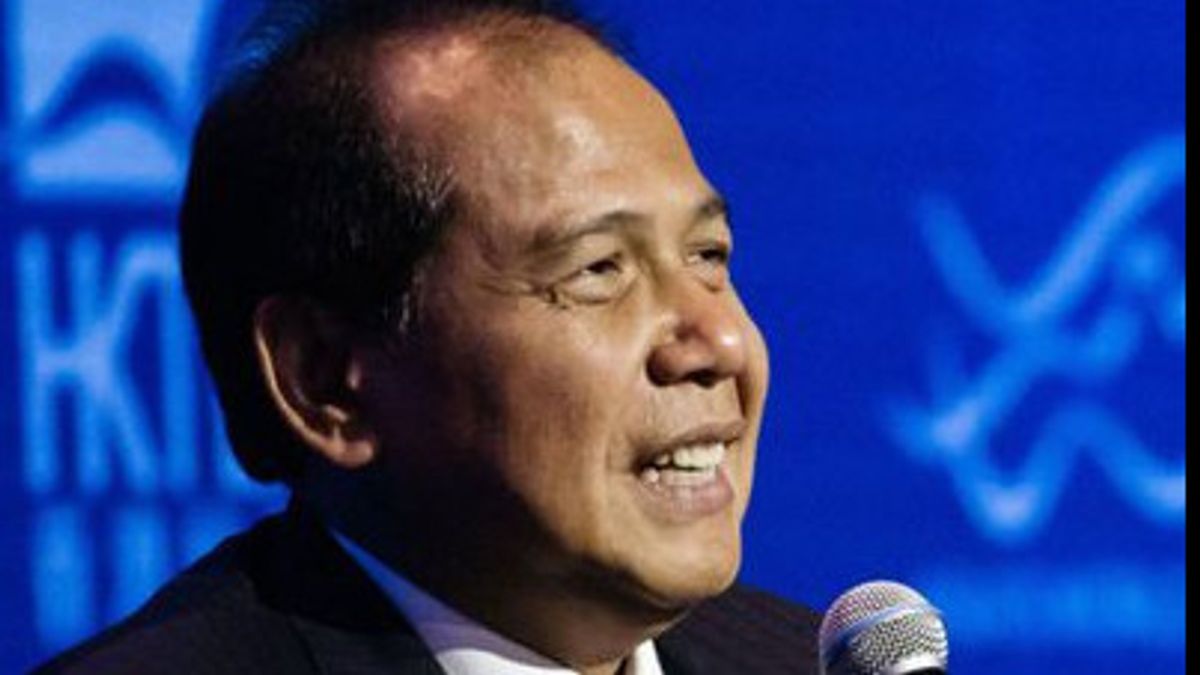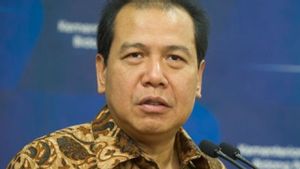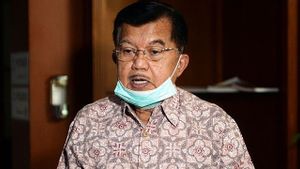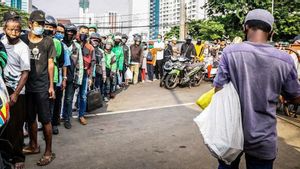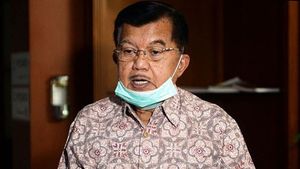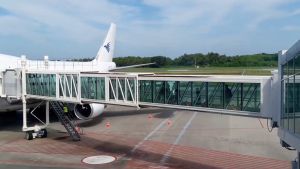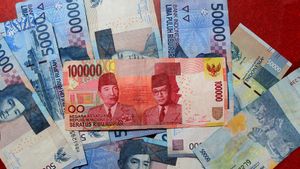JAKARTA - The statement of former Vice President (Vice President) Jusuf Kalla, which correlates wealth level with a background of trust, has attracted special attention from the Indonesian public.
According to the two vice presidents, Muslims still have not dominated the top list of the richest people in this republic.
"From an economic perspective, if there are 10 rich people, then the highest is 1 Muslim. But if 100 people are poor, at least 90 people are poor. So our economic situation is crippled," he said when participating in the Halal Bi Halal KAHMI event which was held virtually on Monday. June 14.
Suddenly this creates its own dynamics in society. One of those who opened the vote was former Democrat Party politician Ferdinand Hutahaean.
"Being rich is not because of religion, but because of hard work, tenacity and intentions. If you are lazy, whatever your religion is, you will be poor. So Mr. JK's comments linking religion with poverty or wealth are inappropriate and tend to be provocative to hate each other," said Ferdinand through personal Twitter account @FerdinandHaean3 as quoted on Thursday, June 17th.
Actually, if you look back, the boss of CT Corp Chairul Tanjung has also spoken about the supremacy of non-Muslims who are the most wealthy people in Indonesia. He put forward the argument based on data released by Forbes at that time.
"Based on Forbes data, of the 50 richest people, 8 are Muslims, 42 are non-Muslims," he said in mid-2017.
So, is the statement of CT, Chairul Tanjung's nickname, still relevant today in order to agree with the opinion of former Vice President Jusuf Kalla three days ago?
At the end of last year, Forbes Indonesia released the latest 100 richest people in Indonesia 2020. In its report, Forbes still places the Hartono Brothers at the top of the list with an estimated wealth of US$38.8 billion or equivalent to Rp548.2 trillion (exchange rate of Rp.14,160).
The next place is filled by the Widjaja family, owner of the Sinar Mas Group conglomerate with a wealth of 11.9 billion US dollars.
Then, Prajogo Pangestu, who is the founder businessman of Chandra Asri, with US$6 billion, Anthony Salim US$5.9 billion, and Sri Prakash Lohia with an estimated net worth of US$5.6 billion.
To note, from the top five lists, none of them adheres to the Islamic faith. So what about the next order?
In the sixth rank of the richest person in Indonesia is occupied by Susilo Wonowidjojo with a total wealth of 5.3 billion US dollars. Then, Jogi Hendra Atmadja with assets of 4.3 billion US dollars, Boenjamin Setiawan 4.1 billion US dollars, Chairul Tanjung 3.9 billion US dollars, and Dato Sri Tahir 3.3 billion US dollars.
Of the ten lists of the richest people in Indonesia, only senior businessman Chairul Tanjung is known to be a Muslim. So, what JK alias Jusuf Kalla said earlier this week is true.
SEE ALSO:
So what about the poor who are said to be mostly Muslim? On the official website of the Indonesian government, it is stated that this country is inhabited by 87.2 percent of the population who are Muslim or equivalent to 207 million people.
Followed by Protestants 6.9 percent, Catholics 2.9 percent, Hindus 1.7 percent, Buddhists 0.7 percent, and Confucians 0.05 percent.
Meanwhile, based on data released by the Central Statistics Agency (BPS), in September 2020 the number of poor people in Indonesia reached 27.55 million people. This rate shot up when compared to the same period the previous year with 24.79 million people.
Then for the distribution of the poor population, most are known to be in Java with a total of 14.67 million people, with details of 8.11 million people living in urban areas and another 6.65 million people in rural areas.
Then followed by Sumatra Island with 6.07 million poor people, Bali and Nusa Tenggara 2.11 million, and Sulawesi Island with 2.06 million people. Meanwhile, Maluku and Papua are said to have only 1.54 million poor people.
Although BPS collects data on the poor, not based on religion, it can be seen that the concentration of the poor occurs in Java, which is an area with a Muslim majority.
So, if this simple assumption can be accepted, then what Jusuf Kalla said is not completely wrong. Wallahu A'lam Bishwab.
The English, Chinese, Japanese, Arabic, and French versions are automatically generated by the AI. So there may still be inaccuracies in translating, please always see Indonesian as our main language. (system supported by DigitalSiber.id)
